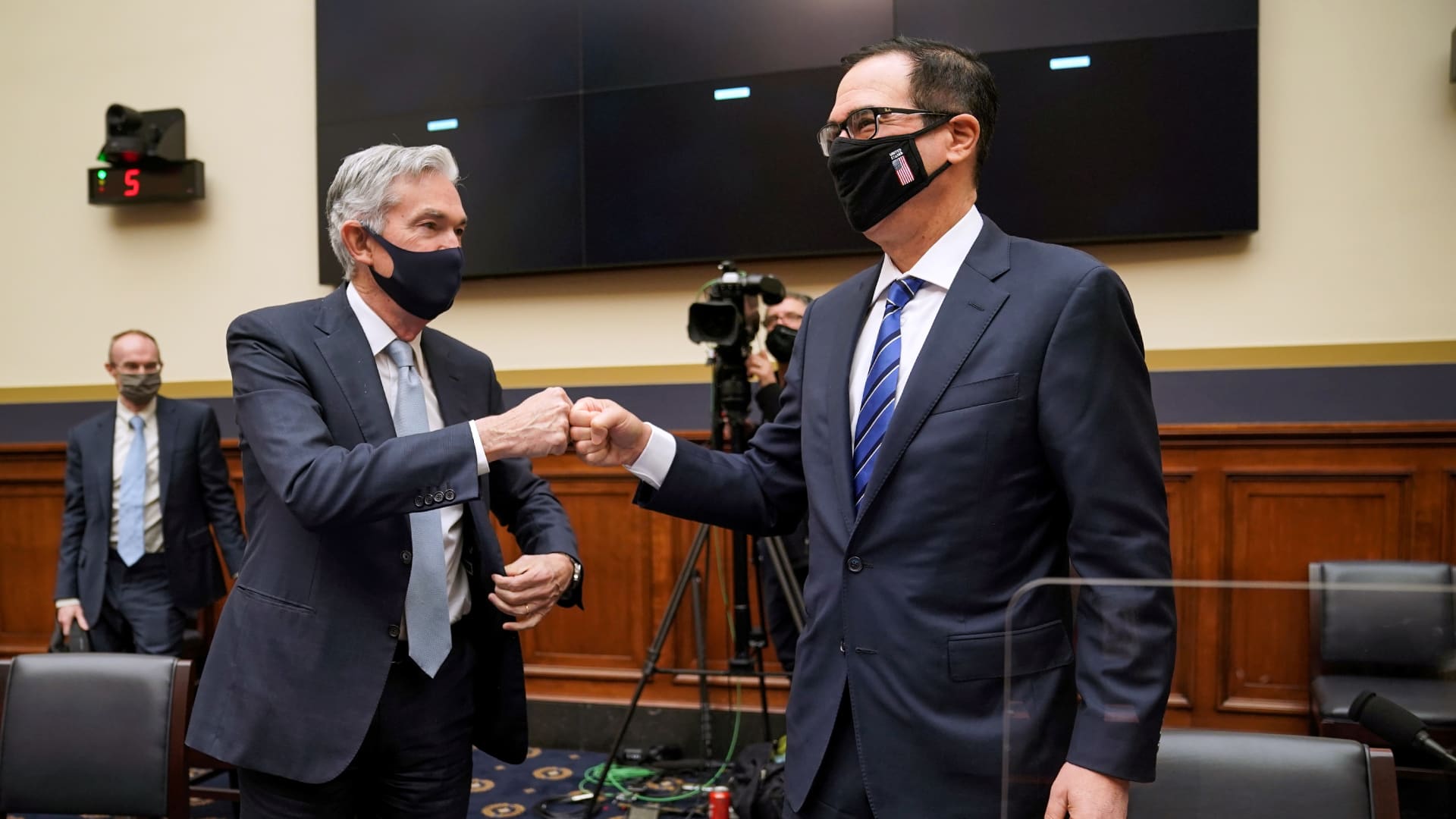Federal Reserve Chairman Jerome Powell gives remarks to former Treasury Secretary Steven Mnuchin following a House Financial Services Committee hearing on “Oversight of the Treasury and Federal Reserve’s Response to the Pandemic” at the Rayburn House Office Building on December 2, 2020 Washington, DC a punch.
Greg Nash | Reuters
The billion dollar injection that New York Community Bank The financing announced Wednesday is the latest example of private equity players going after a troubled American lender.
Led by $450 million from former Treasury Secretary Steven Mnuchin’s Liberty Strategic Capital, a group of private investors is pouring new funds into NYCB. The move eased concerns about the bank’s finances as its shares closed higher on Wednesday after falling sharply earlier in the day.
This cash injection follows last year’s acquisition of PacWest by Banc of California, which was supported by $400 million from Warburg Pincus and Centerbridge Partners. A January merger between FirstSun Capital and HomeStreet also raised $175 million from Wellington Management.
According to advisors on several recent transactions and outside experts, speed and discretion are key in these deals. Although selling stocks on public markets could theoretically be a cheaper source of capital, it is simply not currently available to most banks.
“Public markets are too slow for this type of capital raising,” said Steven Kelly of the Yale Program on Financial Stability. “They’re great if you’re doing an IPO and you’re not in a sensitive environment.”
Additionally, if a bank is known to be actively raising capital before it can complete the deal, its stock could face intense pressure and speculation about its balance sheet. That’s what happened to Silicon Valley Bank, whose failure to raise funding last year effectively marked its death knell.
By midday on Wednesday, headlines about NYCB seeking capital sent shares down 42% before trading was halted. The stock then rose sharply when it was announced that the financing was successful.
“That’s the unfortunate lesson of the SVB,” one consultant said of the NYCB transaction. “In private deals you can talk for a while, and we were almost there before there was even any advertising.”
Mnuchin’s reach
Mnuchin reached out directly to NYCB to offer support amid headlines about the pressure the company was facing, according to a person familiar with the matter. Mnuchin is not just a former Treasury Secretary. In 2009, he led a group that bought California bank IndyMac out of bankruptcy. He eventually turned the bank around and sold it to CIT Group in 2015.
Assuming that Mnuchin and his co-investors have seen – and are happy with – NYCB’s deposit levels and capital situation, the bank now has much more time to resolve its problems. Last week, NYCB disclosed “material weaknesses” in its review of its commercial loans and delayed the filing of a key annual report.
“It buys them a lot of time. That means the FDIC isn’t coming on Friday to seize them,” Kelly said. “They have a billion dollars in capital and a lot of support from someone who has seen the books.”
Don’t miss these stories from CNBC PRO:
Source link
2024-03-06 22:39:34
www.cnbc.com













